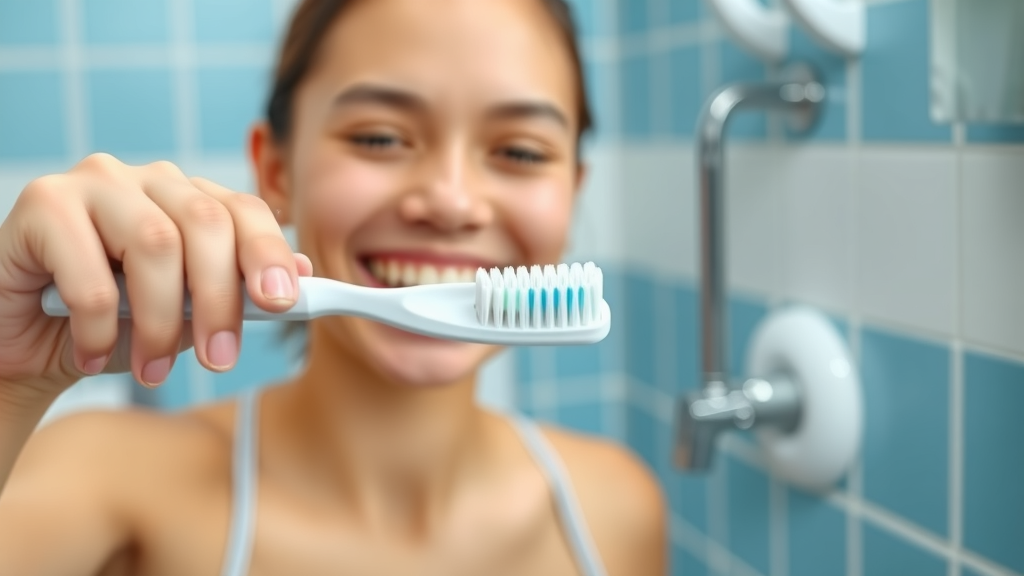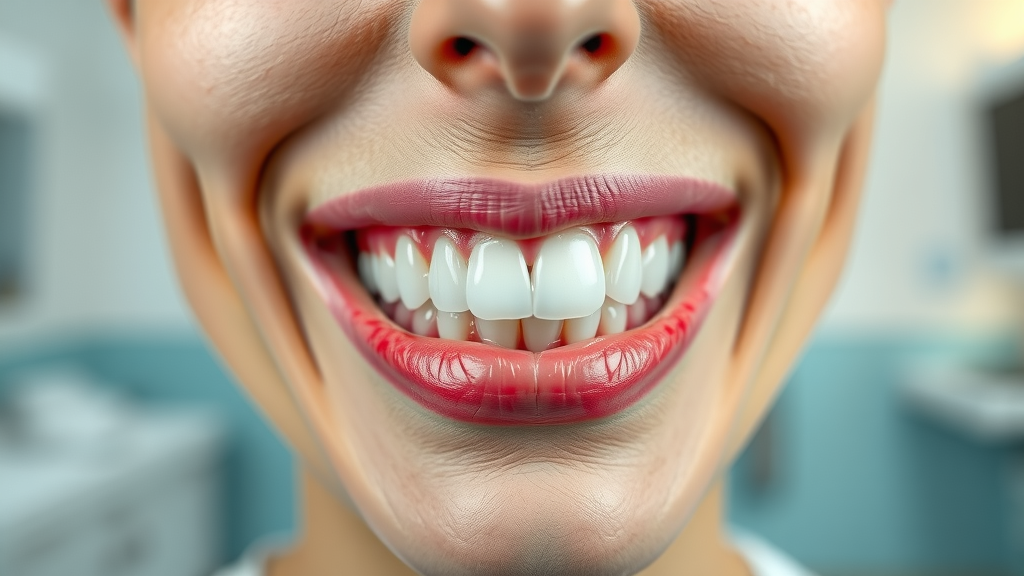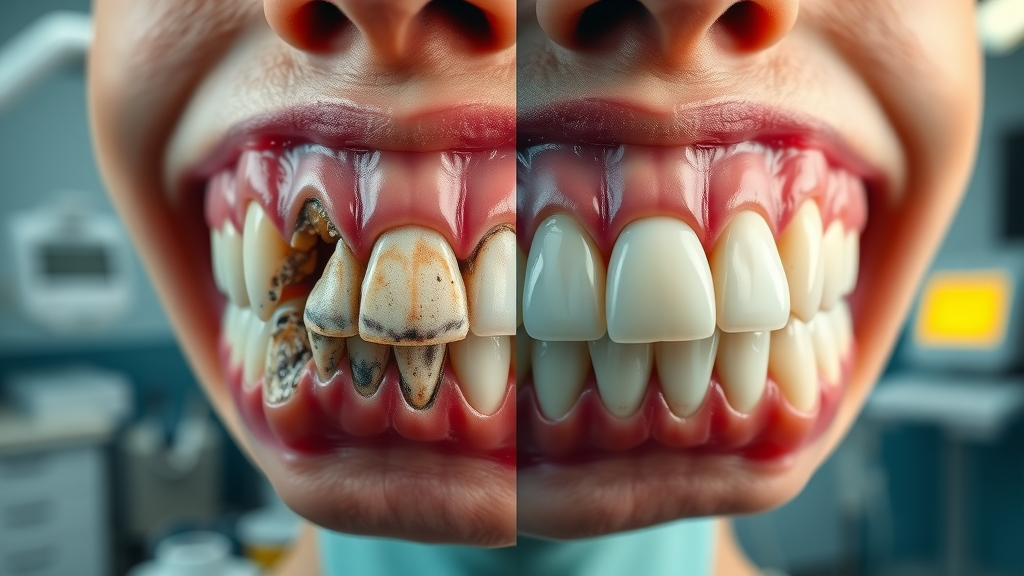Did you know? Nearly 50% of adults over 30 in the United States show signs of gum disease—yet most oral health problems like cavities and gum disease can be prevented. Imagine keeping your smile bright, your breath fresh, and your confidence high simply by following a handful of essential habits. This article will break down the facts, debunk common myths, and empower you with actionable steps to achieve good oral health for life.
A Surprising Truth About Oral Health: Why Prevention Matters

"Did you know that nearly half of all adults over 30 show signs of gum disease? Yet, most oral health issues are preventable with the right habits."
What You'll Gain in Understanding How to Prevent Oral Health Issues Like Cavities and Gum Disease
The science behind oral hygiene and its importance
Actionable tips for dental care
How to recognize and avoid poor oral hygiene
Key differences between healthy teeth and teeth at risk
Guidance tailored for older adults and families
Why Good Oral Hygiene is Essential for Preventing Cavities and Gum Disease
Maintaining good oral hygiene is the cornerstone of preventing oral health issues like cavities and gum disease. When you understand how oral health affects your overall wellness, you realize that proper daily oral routines are not just about avoiding pain—they’re about preserving your quality of life. Poor habits can quickly lead to the build up of plaque along the gum line, creating a breeding ground for bacteria that cause tooth decay and infection.
Implementing a good oral hygiene routine isn’t difficult, but it does require consistency and attention to detail. By brushing and flossing regularly, using fluoride toothpaste and mouth rinse, and scheduling routine dental care, you eliminate the main causes of poor oral hygiene. These preventative steps help you avoid emergencies and ensure your teeth and gums stay healthy for years to come—regardless of age.
While daily care is essential, it's also important to recognize when discomfort or pain may signal a deeper issue. If you ever experience persistent tooth pain or sensitivity, learning about the causes and solutions for a toothache can help you take timely action and prevent complications.
Defining Good Oral Health: Habits That Keep Teeth and Gums Healthy
Daily brushing and flossing techniques: Use gentle, circular motions and brush at least twice daily, complemented by flossing to remove debris between teeth.
Role of fluoride and mouthwash: Fluoride toothpaste and mouth rinse reinforce enamel, making it more resistant to acid and decay.
Regular professional dental care: See your dental hygienist and dentist every six months for cleaning and check-ups to keep your mouth at its healthiest.

Poor Oral Hygiene: The Hidden Dangers to Dental Care
Poor oral hygiene doesn’t just result in temporary bad breath or occasional bleeding gums. It can lead to serious oral health problems like gum disease, tooth decay, and even systemic health conditions. When harmful bacteria aren’t removed regularly, they thrive below the gum line, causing irritation, inflammation, and breakdown of the tissues that support your teeth and gums. Left untreated, this process results in pain and eventual tooth loss.
Early signs of poor oral hygiene—such as persistent bad breath, sensitive teeth, and visible plaque along the gum line—are red flags. Catching these signs early ensures you can reverse damage before it leads to irreversible issues. Neglecting routine dental care increases the risk of developing chronic bad breath (halitosis), gum infections, and loss of healthy teeth, impacting your self-esteem and physical health alike.
The Connection Between Poor Oral Hygiene, Tooth Decay, and Gum Disease
Early signs of poor oral hygiene: Bleeding, swollen gums, sensitive teeth, and persistent bad breath indicate high risk.
The link to chronic bad breath: Accumulated plaque and bacteria produce odors that persist despite brushing.
How tooth decay starts and spreads: Plaque bacteria metabolize sugars into acid, leading to cavities if not disrupted by proper oral hygiene practices.
Easy Steps for Preventing Oral Health Problems Like Cavities and Gum Disease
Fortunately, preventing issues like cavities and gum disease is straightforward. Start by mastering daily basics: brush your teeth with fluoride toothpaste for two minutes, morning and night, and floss once every day. Incorporating mouth rinse and cleaning your tongue regularly helps eradicate additional bacteria, freshen bad breath, and boost your oral health.
Along with good oral hygiene at home, changing certain lifestyle habits will dramatically reduce your risk. Reducing your intake of sugar, not smoking, and choosing water over sweet drinks make a world of difference. Consistency is key—these easy steps, repeated daily, provide long-term protection for your teeth and gums.
Practical Good Oral Habits for Healthy Teeth and Gums
Brushing twice per day for two minutes
Daily flossing methods
Routine tongue cleaning to prevent bad breath

The Importance of Nutrition and Lifestyle on Oral Health
Your diet and lifestyle choices have a significant impact on oral hygiene and the risk of developing gum disease. High-sugar foods and beverages—like sodas, candies, and sweetened juices—feed the bacteria that cause cavities and gum inflammation. Over time, this increases susceptibility to tooth decay and oral infections, especially when proper oral hygiene isn’t maintained.
In contrast, drinking water throughout the day helps rinse away food particles and keeps your mouth hydrated. Eating fiber-rich fruits and vegetables stimulates saliva flow, creating a natural defense against harmful acids. Additionally, avoiding smoking and excessive alcohol consumption is crucial, as these habits are linked with increased rates of oral cancer and complications in oral health—especially for older adults.
How Diet Influences Oral Hygiene and Reduces the Risk of Gum Disease
Avoiding sugary foods and drinks
Benefits of water and fiber-rich foods
The impact of smoking and alcohol
Professional Dental Care: Your Partner in Preventing Gum Disease and Oral Health Issues
No matter how thorough your home care is, professional dental care remains essential. Dentists and dental hygienists use specialized tools and training to remove stubborn tartar, examine your teeth and gums for early-stage gum disease or tooth decay, and educate you about customized care routines. Regular checkups give you a head start on preventing complications while screening for serious health risks like oral cancer.
Routine dental cleanings and exams not only keep your mouth feeling fresh but also alert you to issues before they result in pain, tooth loss, or costly restorations. For older adults and patients with chronic disease or other health conditions, these appointments provide valuable support in tailoring oral hygiene for specific needs and ensuring optimal health at any age.
Routine Dental Visits: What to Expect and How They Help
Benefits of dental cleanings and checkups
Screening for oral cancer
Special considerations for older adults

Spotting the Signs of Oral Health Problems Early
Early detection is your most powerful tool in safeguarding your oral health. Recognizing what healthy teeth and gums look like—versus early warning signs of disease—enables you to seek prompt professional care and stop minor issues in their tracks. Pink, firm gums, no pain while eating, and fresh breath are hallmarks of a healthy mouth. In contrast, red, swollen or bleeding gums and persistent bad breath often indicate brewing trouble.
When left untreated, these symptoms can escalate to serious oral health problems, such as tooth decay, infections, and even chronic disease affecting other parts of the body. That’s why being proactive—knowing what to watch for, and acting early—is an indispensable part of proper oral hygiene for everyone, from kids to older adults.
What Healthy Teeth and Gums Look Like vs. the Warning Signs
Healthy Teeth & Gums |
Early Warning Signs |
|---|---|
Pink, firm gums |
Red, swollen, bleeding gums |
No pain while eating |
Tooth sensitivity or ache |
Fresh breath |
Persistent bad breath |

Oral Health for Older Adults: Special Tips and Dental Care Advice
Older adults face unique challenges in maintaining good oral health. Medications often cause dry mouth, which increases the risk of tooth decay and infection. Regular dental care, focused on hydration, using mouth rinse, and adjusting cleaning techniques for sensitive gums, is vital for this age group. Gentle flossing and the use of soft-bristled toothbrushes help prevent bleeding and discomfort along the gum line.
Another key concern for older adults is the prevention of tooth loss and gum disease. Dental cleanings, fluoride treatments, and professional exams address these risks. For those who wear dentures, cleaning them daily with dedicated products ensures a healthy mouth and helps avoid oral infections. Practicing these habits supports a comfortable, confident, and healthy quality of life in the golden years.
Maintaining Good Oral Hygiene in Your Golden Years
Managing dry mouth due to medications
Preventing tooth loss and gum disease
Cleaning and care tips for dentures
Complications of Bad Oral Hygiene: More Than Just Tooth Decay
The risks of poor oral hygiene go far beyond cavities or bad breath. Chronic gum infections have been linked to systemic health conditions—including heart disease, diabetes, and even increased risk of oral cancer. When bacteria from the mouth enter the bloodstream, they can trigger inflammation throughout the body, harming the cardiovascular system and complicating diabetes management.
In older adults, poor oral care also raises the likelihood of respiratory infections, as harmful microorganisms make their way from the oral cavity to the lungs. These connections highlight the importance of proper oral hygiene for every age, showing how critical it is to take your daily dental routines seriously—not just for your mouth, but for your overall well-being.
How Poor Oral Hygiene and Gum Disease Affect Your Body
Links to heart disease and diabetes
The risk of oral cancer
Connection to respiratory issues in older adults

People Also Ask:
How can you prevent cavities and gum disease?
"You can prevent cavities and gum disease by maintaining good oral hygiene: brush with fluoride toothpaste, floss daily, limit sugary foods, and visit your dentist regularly for cleanings and checkups."
Can you fix bad oral hygiene?
"Yes, reversing bad oral hygiene starts with adopting healthy habits: consistent brushing, flossing, dietary improvements, and timely dental care can dramatically improve your oral health."
What is considered poor oral hygiene?
"Poor oral hygiene is marked by irregular brushing and flossing, frequent bad breath, visible plaque, bleeding gums, or neglected professional dental care."
What are the causes of poor oral hygiene?
"The main causes of poor oral hygiene include poor brushing habits, high-sugar diets, lack of dental visits, smoking, and certain medical conditions."
Expert Advice on Preventing Tooth Decay and Gum Disease
"Early action, proper technique, and regular checkups are your best defense against gum disease. Your smile is worth the effort." – American Dental Association
Myths and Facts: Debunking Common Misconceptions About Oral Health
Myth: You only need to see a dentist when something hurts
Fact: Preventative care prevents pain and costly treatments
Myth: Bleeding gums are normal
Fact: They signal gum disease risk
Best Everyday Practices for Ensuring Good Oral Health
A Quick Reference List of Healthy Habits
Brush with fluoride toothpaste
Replace your toothbrush every three months
Floss daily
Eat a balanced diet
Limit snacking
Avoid tobacco
Quick Reference FAQs: How Can I Prevent Oral Health Issues Like Cavities and Gum Disease?
How often should I brush and floss? Brush your teeth twice a day for two minutes and floss at least once daily for best results.
What foods and drinks should I avoid? Steer clear of foods and drinks high in sugar, like candy, soda, and sweetened juices; instead, choose water and fiber-rich snacks.
Are electric toothbrushes better? Electric toothbrushes can improve cleaning efficiency, especially for those who struggle with manual brushing techniques.
Why are dental checkups important? Dental checkups allow hygienists and dentists to detect problems early, perform dental cleanings, and provide personalized care plans.
Can mouthwash replace flossing? Mouthwash can help reduce bacteria, but it cannot mechanically remove plaque—flossing remains essential for cleaning between teeth.
Take Action for Lifelong Oral Health
"Invest in your smile today for health, confidence, and better well-being tomorrow."
For comprehensive dental care and personalized attention, contact
Johnstown Dental Care: 370 West Coshocton St. Johnstown, OH 43031.
Phone: (470) 967-6046.
Website: www.johnstowndentalcare.com.
Proudly Serving Johnstown, New Albany, Granville, Alexandria, Pataskala, and surrounding areas in Licking County, Franklin County, and Delaware County.
Key Points for Preventing Oral Health Issues Like Cavities and Gum Disease
Good oral hygiene is your first line of defense
Diet, lifestyle, and professional dental care matter
Detect and address issues early
Consistency keeps your oral health on track
Instructional video demonstrating step-by-step proper brushing techniques with clear visuals and expert dental commentary.
Your commitment to daily oral care, smart nutrition, and regular dental checkups is the best way to keep cavities and gum disease at bay. Act now for a lifetime of healthy smiles!
If you're interested in taking your oral health knowledge even further, consider exploring the broader impact of advanced dental solutions. For those facing tooth loss or seeking to restore their smile, understanding the benefits and process of dental implants can open up new possibilities for long-term oral wellness. Discover how modern implant dentistry not only replaces missing teeth but also supports jaw health and overall confidence. By staying informed about all your options, you empower yourself to make the best choices for a healthy, vibrant smile at every stage of life.
Maintaining optimal oral health is crucial for preventing cavities and gum disease. In addition to daily brushing and flossing, incorporating fluoride treatments can significantly strengthen tooth enamel and reduce decay risk. The article “How To Prevent Tooth Decay & Gum Disease” provides comprehensive insights into effective oral hygiene practices, including the benefits of fluoride.
Furthermore, regular dental check-ups are essential for early detection and management of oral health issues. The Centers for Disease Control and Prevention (CDC) emphasizes the importance of routine dental visits in their guide “Preventing Oral Diseases and Conditions in Communities,” highlighting strategies for maintaining oral health at the community level. (cdc.gov)
By integrating these resources into your oral care routine, you can enhance your understanding and implementation of preventive measures against cavities and gum disease.
 Add Row
Add Row  Add
Add 




Write A Comment